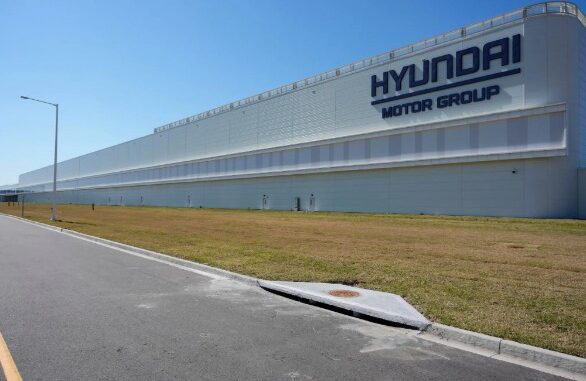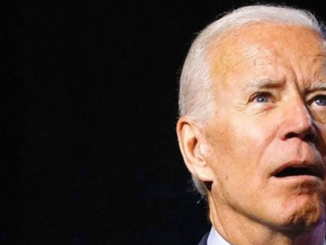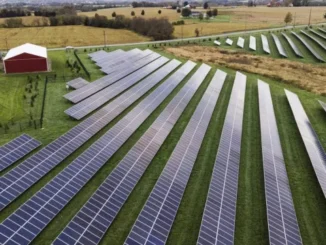
September 6, 2025In a dramatic escalation of immigration enforcement, U.S. Immigration and Customs Enforcement (ICE) conducted a large-scale raid on Hyundai’s electric vehicle (EV) battery manufacturing plant in Bryan County, Georgia, resulting in the detention of 475 individuals. The operation, described by Homeland Security Investigations as the largest single-site immigration raid in recent years, has sparked diplomatic tensions with South Korea, raised questions about labor practices in the burgeoning EV sector, and highlighted the challenges of balancing economic growth with immigration compliance.
The raid targeted a joint venture facility between Hyundai Motor Group and LG Energy Solution, part of Hyundai’s broader Metaplant America complex dedicated to EV production. This incident comes amid the U.S. push for domestic manufacturing of clean energy technologies, fueled by incentives under the Inflation Reduction Act (IRA). However, it underscores potential vulnerabilities in the supply chain for EV batteries, a critical component in the transition to sustainable energy.
Are you Paying High Taxes in New Jersey, New York, or California?
Details of the ICE Raid
The operation unfolded on Thursday, September 4, 2025, at the Ellabell, Georgia, site where agents executed a judicial search warrant as part of an ongoing investigation into employment practice violations. According to reports citing ICE officials, the raid initially targeted four individuals but expanded after discovering widespread immigration infractions among the workforce.
Federal agents, including Homeland Security Investigations (HSI) personnel, detained 475 people suspected of living and working in the U.S. illegally. Most of those arrested were South Korean nationals, many of whom were allegedly working on visitor visas that do not permit employment.
Some workers attempted to flee the scene, with dramatic accounts of individuals hiding or even trying to escape via nearby waterways, but all were apprehended.
ICE spokesperson Lindsay Williams stated that the detainees were transported to the Folkston ICE Processing Center in Georgia for further processing. The agency emphasized that the raid was part of efforts to enforce foreign worker laws and prevent exploitation in high-profile industries.
South Korea’s foreign ministry expressed concern over the treatment of its citizens, urging U.S. authorities to ensure their rights and expedite resolution.
While ICE did not release an official press statement directly on its website regarding this specific raid (based on available searches), multiple credible sources confirmed the details through agency briefings. The operation has been praised by some for upholding immigration laws but criticized by others for disrupting a key economic project.
Investment in the PlantHyundai’s commitment to the Georgia facility represents a massive infusion of capital into the U.S. EV ecosystem. The joint battery plant with LG Energy Solution alone involves a $4.3 billion investment, split equally between the two companies.
This is part of the larger Hyundai Motor Group Metaplant America (HMGMA) project, which carries a total price tag of $7.6 billion for the EV assembly and battery production complex.
Overall, Hyundai’s investments in Georgia, including joint ventures with LG and SK On for battery production, exceed $12.6 billion. These funds are aimed at producing up to 500,000 EVs annually, supporting models like the Hyundai IONIQ 5 and Kia EV9, and bolstering the domestic supply chain for lithium-ion batteries essential to renewable energy storage.
Workforce Size and Worker Status
The Metaplant was projected to employ up to 8,500 workers at full capacity, focusing on high-tech manufacturing roles in EV assembly and battery production.
As of recent reports, Hyundai had hired around 1,400 employees, with a significant portion (about 81% in earlier data) sourced locally within a 60-mile radius.
The raid’s detention of 475 individuals—roughly a third of the current workforce—suggests a heavy reliance on foreign labor during the construction and ramp-up phases.The detained workers were deemed “illegal” in the context of U.S. immigration law, primarily for violating visa terms. Many held B-1/B-2 visitor visas or other non-work authorizations but were found performing labor at the site.
This included South Korean citizens, some of whom may have entered legally but overstayed or engaged in unauthorized employment. ICE clarified that the action addressed systemic violations rather than isolated cases, with no immediate charges against Hyundai itself, though investigations into contractors continue.
Tax Subsidies and Incentives
To attract Hyundai’s investment, Georgia offered an estimated $2.1 billion in tax breaks and other incentives, scaling up from initial projections due to expanded production plans.
These include statutory tax credits for job creation, property tax abatements, and infrastructure support, available to qualifying businesses under state law.
Federally, the plant benefits from IRA provisions, such as up to $7,500 EV tax credits for vehicles assembled in North America, which Hyundai rushed to qualify for by accelerating construction.
Critics argue these subsidies indirectly supported a workforce with immigration issues, potentially undermining the intent of boosting American jobs.
Wage Disparities
Specific wage data for the detained workers versus U.S. citizens at the Hyundai plant is not publicly detailed in raid reports. However, broader studies and historical cases in Georgia’s manufacturing sector indicate that unauthorized workers often earn 10-20% less than legal employees due to exploitation and lack of bargaining power.
In similar industries, such as auto and construction, illegal immigrants or visa violators are paid lower wages to cut costs—sometimes as much as $5-10 per hour less than prevailing rates for U.S. citizens, which average around $25-35/hour for skilled manufacturing roles in Georgia.
Workers at the plant described being misled into manual labor under false pretenses, further suggesting wage suppression.
This practice not only drives down overall wages but also raises ethical concerns in taxpayer-subsidized projects.
Implications for the Energy Sector
This raid could delay production at a facility pivotal to U.S. EV battery independence, potentially affecting supply for models qualifying for federal clean energy incentives. As the Biden-Trump transition looms, it highlights tensions between immigration crackdowns and industrial policy goals. Hyundai has pledged cooperation with authorities, but the incident may prompt stricter vetting of foreign labor in energy infrastructure projects.
Management that willingly hires illegal workers at a lower wage should be fired, and fines should be imposed on the corporation. As investors become aware of this behavior, they should also vote with their investments against companies that engage in illegal hiring practices. As consumers are made aware of this practice, they should not buy the products made in these factories. As for me and my house, we do not buy Tyson Chicken products as they have been supporting illegal employment for years.
Any Democrat or Republican who supported open borders is responsible for the wage issues and problems of our tax dollars being used to fund lower-wage illegal immigrants.
The Energy News Beat Channel will continue monitoring developments in this story, as it intersects immigration, manufacturing, and the green energy transition. For more on EV advancements and policy impacts, stay tuned.
Avoid Paying Taxes in 2025
Crude Oil, LNG, Jet Fuel price quote
ENB Top News
ENB
Energy Dashboard
ENB Podcast
ENB Substack






